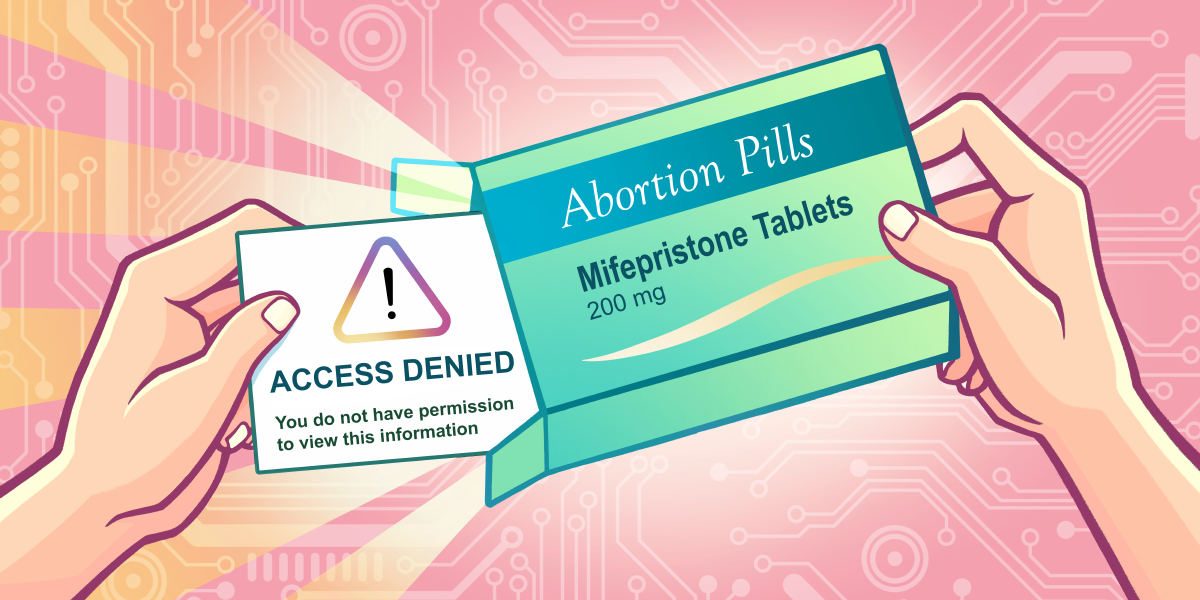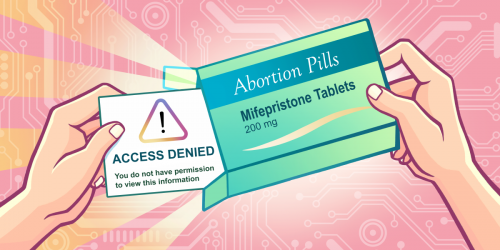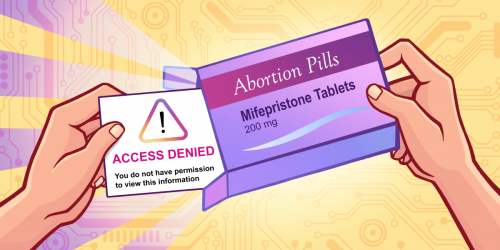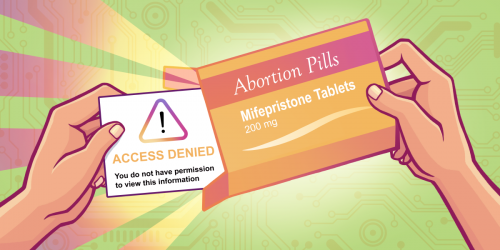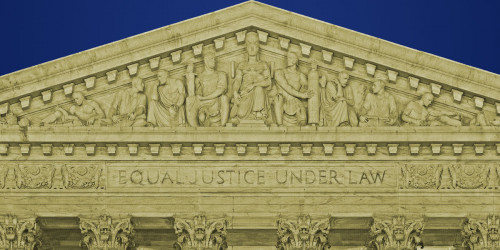BY JILLIAN C. YORK | September 19, 2025
This is the third installment in a blog series documenting EFF's findings from the Stop Censoring Abortion campaign. You can read additional posts here.
Imagine sharing information about reproductive health care on social media and receiving a message that your content has been removed for violating a policy intended to curb online extremism. That’s exactly what happened to one person using Instagram who shared her story with our Stop Censoring Abortion project.
Meta’s rules for “Dangerous Organizations and Individuals” (DOI) were supposed to be narrow: a way to prevent the platform from being used by terrorist groups, organized crime, and those engaged in violent or criminal activity. But over the years, we’ve seen these rules applied in far broader—and more troubling—ways, with little transparency and significant impact on marginalized voices.
EFF has long warned that the DOI policy is opaque, inconsistently enforced, and prone to overreach. The policy has been critiqued by others for its opacity and propensity to disproportionately censor marginalized groups.
Samantha Shoemaker's post about Plan C was flagged under Meta's policy on dangerous organizations and individuals
Meta has since added examples and clarifications in its Transparency Center to this and other policies, but their implementation still leaves users in the dark about what’s allowed and what isn’t.
The case we received illustrates just how harmful this lack of clarity can be. Samantha Shoemaker, an individual sharing information about abortion care, shared straightforward, facts about accessing abortion pills. Her posts included:
- A video linking to Plan C’s website, which lists organizations that provide abortion pills in different states.
- A reshared image from Plan C’s own Instagram account encouraging people to learn about advance provision of abortion pills.
- A short clip of women talking about their experiences taking abortion pills.
Information Provided to Users Must Be Accurate
Instead of allowing her to facilitate informed discussion, Instagram flagged some of her posts under its “Prescription Drugs” policy, while others were removed under the DOI policy—the same set of rules meant to stop violent extremism from being shared.
We recognize that moderation systems—both human and automated—will make mistakes. But when Meta equates medically accurate, harm-reducing information about abortion with “dangerous organizations,” it underscores a deeper problem: the blunt tools of content moderation disproportionately silence speech that is lawful, important, and often life-saving.
At a time when access to abortion information is already under political attack in the United States and around the world, platforms must be especially careful not to compound the harm. This incident shows how overly broad rules and opaque enforcement can erase valuable speech and disempower users who most need access to knowledge.
And when content does violate the rules, it’s important that users are provided with accurate information as to why. An individual sharing information about health care will undoubtedly be confused or upset by being told that they have violated a policy meant to curb violent extremism. Moderating content responsibly means offering the greatest transparency and clarity to users as possible. As outlined in the Santa Clara Principles on Transparency and Accountability in Content Moderation, users should be able to readily understand:
- What types of content are prohibited by the company and will be removed, with detailed guidance and examples of permissible and impermissible content;
- What types of content the company will take action against other than removal, such as algorithmic downranking, with detailed guidance and examples on each type of content and action; and
- The circumstances under which the company will suspend a user’s account, whether permanently or temporarily.
What You Can Do if Your Content is Removed
If you find your content removed under Meta’s policies, you do have options:
- Appeal the decision: Every takedown notice should give you the option to appeal within the app. Appeals are sometimes reviewed by a human moderator rather than an automated system.
- Request Oversight Board review: In certain cases, you can escalate to Meta’s independent Oversight Board, which has the power to overturn takedowns and set policy precedents.
- Document your case: Save screenshots of takedown notices, appeals, and your original post. This documentation is essential if you want to report the issue to advocacy groups or in future proceedings.
- Share your story: Projects like Stop Censoring Abortion collect cases of unjust takedowns to build pressure for change. Speaking out, whether to EFF and other advocacy groups or to the media, helps illustrate how policies harm real people.
Abortion is health care. Sharing information about it is not dangerous—it’s necessary. Meta should allow users to share vital information about reproductive care. The company must also ensure that users are provided with clear information about how their policies are being applied and how to appeal seemingly wrongful decisions.
This is the third post in our blog series documenting the findings from our Stop Censoring Abortion campaign. Read more in the series: https://www.eff.org/pages/stop-censoring-abortion


